Recycling Polyamide12 Petrochemicals 15-06-2021 - Arhive
Recycling Polyamide12 Petrochemicals
Crude Oil Prices Trend
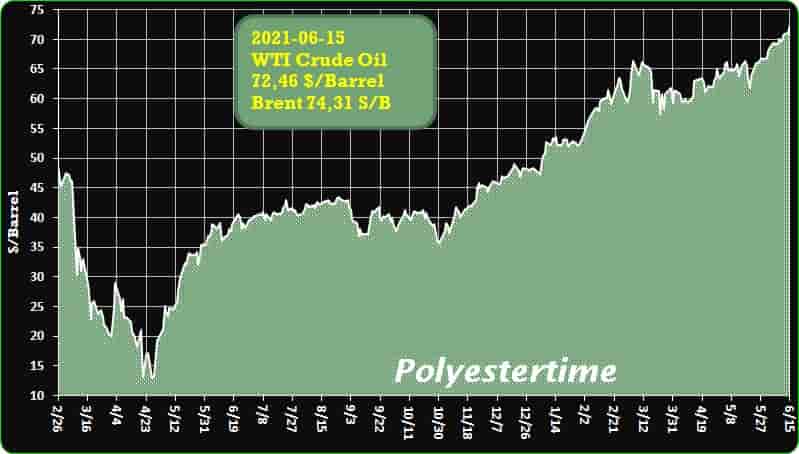
-What are bio-based fibers and what can they do?
En route to the post-fossil age, conventional, petroleum-based synthetic fibres have long been counted out.
But what alternatives are there, which innovations are actually more sustainable and how will the consumption of synthetic fibres develop in the coming years? FashionUnited asked outdoor supplier and sustainability pioneer Vaude.
The current outdoor industry would be inconceivable without synthetic fibres. The vast majority of functional materials are based on synthetic man-made fibres such as polyester and polyamide.
How could this change? Outdoor supplier and sustainability pioneer Vaude has just launched a pair of trekking pants made from bio-based polyamide
The yarn used consists of 62 percent castor oil and was developed together with polymer specialist Evonik.
Does the future belong to bio-based plastics in the clothing industry? We talked about it with René Bethmann, innovation manager at Vaude.
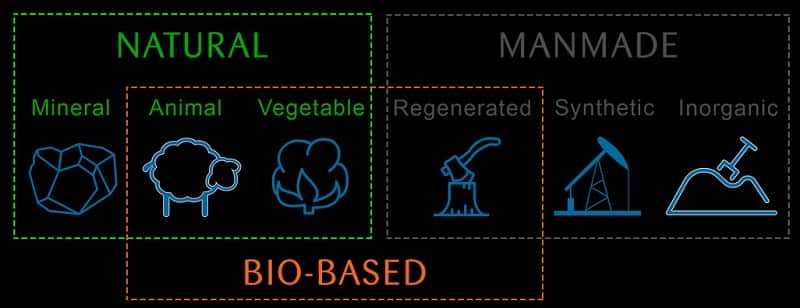
-Searious Business investigates advanced recycling solutions
Searious Business has been working with IUCN on the Plastic Waste Free Island (PWFI) project since 2019. Their goal is to rethink the plastic generated on islands and stopping it from leaking into the surrounding marine environment.
The project’s primary focus has been reducing, reusing and recycling waste. However, not all plastics are so easily replaced or mechanically recycled. There will always remain some plastic products that require a different kind of treatment. Finding advanced recycling technologies in remote areas is the challenge Searious Business has taken on. Recycling Polyamide12 Petrochemicals
Plastic products such as polyolefin bags and films, LDPE items, HDPE and polystyrene cannot be handled easily. Alternative methods to convert them back to clean and valuable feedstock forms part of this challenge. Processes such as chemical recycling, pyrolysis, depolymerisation and gasification can work, and the plastic could also be used for waste-to-energy processes. Unfortunately, non-recyclable plastics are not currently dealt with by the waste management on the islands, and volumes are increasing, causing severe environmental issues. Alongside CE Delft, Searious Business will carefully analyse the waste generation, as well as evaluate and identify the most suitable technologies.

-Is the emerging world still emerging?
Without Coivd-19, Gross Domestic Product (GDP) growth in the past decade would have been about 3.6 per cent-just below the 3.7 per cent experienced in 2000-09. Not bad given all the challenges, and contrary to the mood of pre-pandemic times. Indeed, each decade has witnessed stronger economic growth than the 1980s and 1990s, each about 3.3 per cent. Recycling Polyamide12 Petrochemicals
Hundreds of millions of people have been taken out of absolute poverty as a result, in part because of the growth miracle led by the so-called emerging markets, of which my beloved BRICs were front and centre.
The year 2021 marks the 20th anniversary of my coining the acronym “BRICs” to summarise the likely rising economic relevance of Brazil, Russia, India, and China and the implications of their rise for global governance. As the world looks to the remainder of 2021 and beyond, what can we expect from emerging markets?
BRICS REVISITED: My primary goal in my first paper, “The World Needs Better Economic BRICs,” was to make a case for changing the framework for global economic governance, not necessarily the inevitable future growth of these countries.
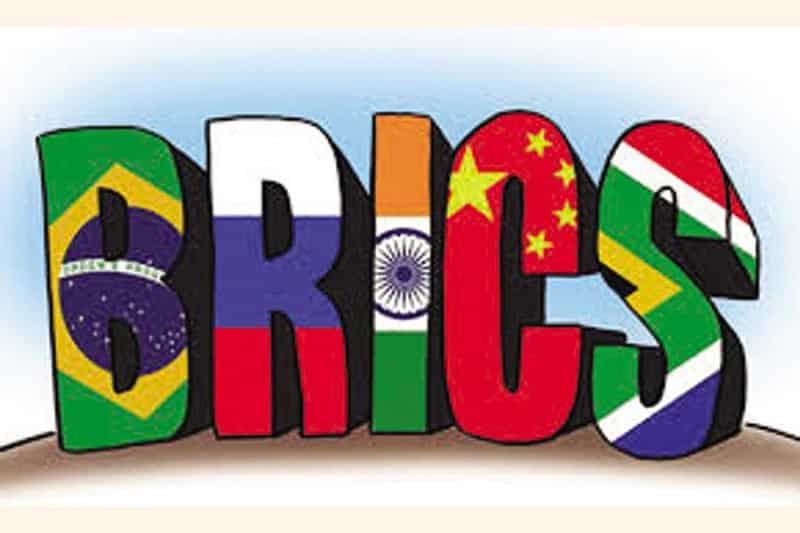
-Will the biodegradable plastic PHA finally deliver?
Producers of the polymer say they are getting traction in the marketplace, but others have doubts
n April, Daniel Carraway, founder of the polyhydroxyalkanoate start-up RWDC Industries, found himself in an unusual forum for someone trying to sell plastic. Carraway was being interviewed by the Iron Man actor Robert Downey Jr. on the FootPrint Coalition’s YouTube channel. The FootPrint Coalition is Downey’s venture capital firm and also an RWDC investor. Recycling Polyamide12 Petrochemicals
The FootPrint Coalition’s other investments include a bamboo toilet paper company and an outfit developing mealworm protein.
Encouraged by Downey, Carraway pitched his biodegradable biopolymer as the solution to the plastic waste crisis. “We have to clean u
The plastic industry has been trying to establish a recycling infrastructure since the 1970s, he noted, but it “just doesn’t work.”
Carraway and other proponents are hyping polyhydroxyalkanoates, known collectively as PHA, as the next big thing, but they are hardly new.
Nature has used this class of polymers to store cellular energy for millions of years. Companies have been trying to commercialize them—via industrial fermentation—for several decades. But despite what should be a strong selling point—biodegradability in a wide range of environments—they haven’t taken off. The list of companies that have tried and failed to bring PHA to market keeps growing.
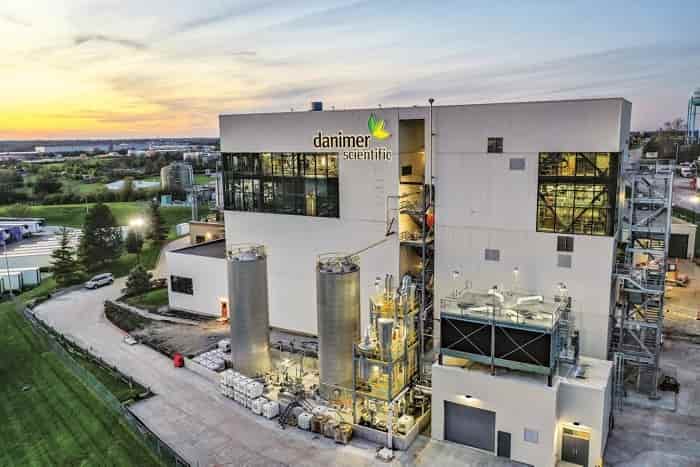
-Clariant agrees to sell pigments business in $950 mln deal
Clariant (CLN.S) has agreed to sell its pigments business to Heubach Group and SK Capital Partners in a deal which values the business at up to 855 million Swiss francs ($951.27 million), the Swiss chemicals maker said on Monday.
Clariant said it would reinvest to become a 20% shareholder in the new combined business, which employs 3,000 people and has annual sales of around 900 million euros ($1.09 billion).
The deal represented an enterprise value of 805 to 855 million francs, depending on an earn-out payment based on the 2021 financial performance of the business which makes pigments and dyes used in the automotive, plastics and other industries.
Clariant said the sale, which is expected to be completed in the first half of 2022, represented a multiple of 10.7 to 11.4 times the standalone EBITDA of the pigments business in the year to April 2021.

-Harwal Group builds new polymer facilities in Kizad
Kizad Polymers Park’s turnkey role in Harwal Group’s growth
Harwal Group is pleased to collaborate with Khalifa Industrial Zone Abu Dhabi (Kizad) to build its manufacturing facilities at the Kizad Polymers Park. The facilities will be for its flagship companies: Interplast and Cosmoplast, to produce and supply a wide range of standard plastic products, and customised products for specific industries.
“Kizad Polymers Park is an important platform for enhancing our business in the UAE and Middle East region while enabling us to expand our reach into the African and European markets. The supply chain efficiencies, strategic location, competitive setup solutions and world-class facilities provided by Kizad will position Interplast and Cosmoplast to support Abu Dhabi’s Economic Vision 2030 and industrial diversification across the UAE,” said Walid Najjar, General Manager, Interplast/Cosmoplast. Recycling Polyamide12 Petrochemicals
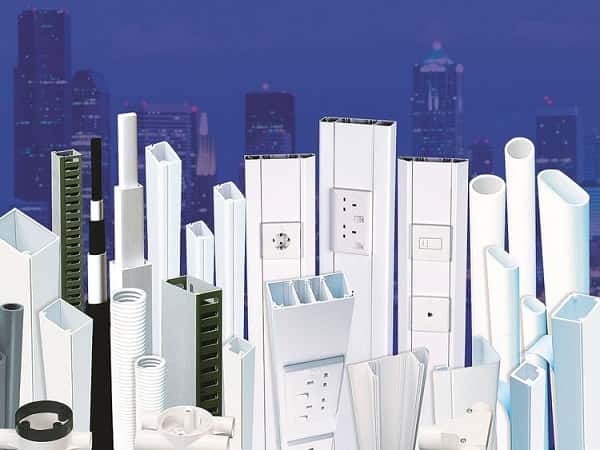
-Harsco focus on sustainability results in up to 94 percent recycling rate
Harsco Corporation, a provider of environmental solutions for industrial and specialty waste streams, recently released its Environmental, Social & Governance (ESG) Report, highlighting the company’s corporate sustainability accomplishments throughout fiscal year 2020. Recycling Polyamide12 Petrochemicals
Highlights of the report show that the company now derives 82-percent of annual revenue from environmental solutions, up from 62-percent three years ago, and that over 75-percent of waste and byproduct material processed annually by Harsco is recycled or repurposed, including 94-percent in the company’s new Clean Earth division.
The company also launched 29 new environmental solutions in 2020, an increase of nearly 32-percent from 2019, and for the first time ever, the company has incorporated an ESG modifier in top 70 executives’ performance evaluations.
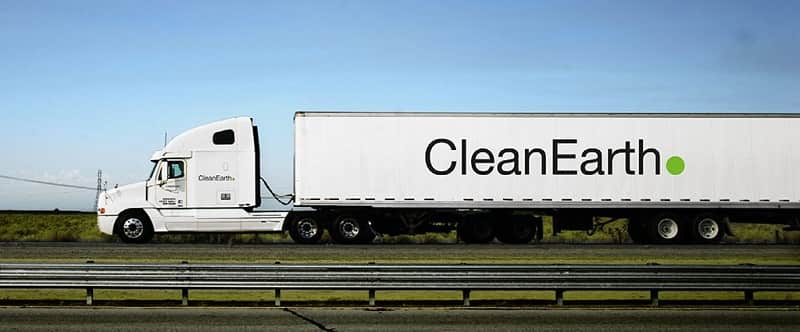
-GPCA: Catalyst for the regional petrochemicals industry
Exclusive with Dr Abdulwahab Al-Sadoun, Secretary General, GPCA
Please highlight some of the critical functions of the Gulf Petrochemicals and Chemicals Association. Recycling Polyamide12 Petrochemicals
GPCA was established in 2006 to represent the downstream hydrocarbon industry in the Arabian Gulf. Today, we voice the common interests of more than 250 member companies from the chemical and allied industries, accounting for over 95 per cent of chemical output by volume in the GCC.
GPCA supports the petrochemical and chemical industry in the Arabian Gulf through advocacy, effective networking and thought leadership initiatives aimed at helping member companies to connect, share and advance knowledge, contribute to international dialogue, and become prime influencers in shaping the future of the global petrochemicals industry.
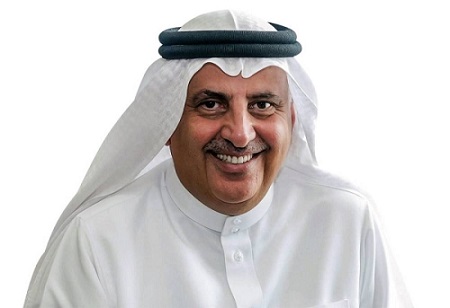
-Oil to trade between $68 and $75 in second half of 2021 amid rising demand, Iraq minister says
Crude prices have increased due to supportive Opec+ policies and growing demand as economies reopen
Oil is expected to trade in the range of $68 to $75 per barrel in the second half of this year, Iraq’s oil minister Ihsan Abdul Jabbar said.
Crude prices will remain in this range if Opec and its allies continue to cut production to support the markets, Mr Jabbar told reporters in Baghdad on Saturday.
There were also “new projects in which there is a common interest” between the country and longstanding investor Exxon Mobil following reports last month that the government is planning to buy the US company’s stake in the West Qurna 1 field, Mr Jabbar said. Recycling Polyamide12 Petrochemicals
“We expect that Exxon Mobil will remain in a certain part of Iraq in some investments, it came out only from West Qurna 1,” Mr Jabbar was quoted by Reuters as saying.
Iraq is the second-biggest producer within the Opec group with a total output of 3.96 million barrels per day, according to the latest data from Opec’s monthly oil markets report.
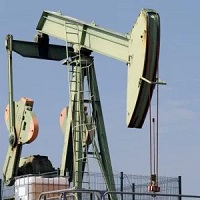
-Innovative financing mechanisms to drive a circular economy
PET, or polyethylene terephthalate, is the inexpensive, versatile plastic used to make bottles, food containers and other modern conveniences. Even though PET is a highly valuable and readily recyclable material, there is not enough waste collection and recycling capacity in many countries in South and Southeast Asia. PET and other plastics stay in the environment for hundreds of years, and when exposed to sunlight and seawater, they fragment into microplastics that are consumed by marine life and eventually make their way into the food chain with unknown health impacts.
More robust global recycling efforts would go a long way toward integrating the plastics value chain into a circular economy where waste is managed as a valuable resource and reclaimed, reprocessed and ultimately used as feedstock for new plastic products. That would help the environment in several ways. First, it would mean less fossil fuel feedstock would be used to make virgin plastic that would significantly reduce greenhouse gas emissions. But more importantly, less discarded plastic would pile up. Important progress has already been made along those lines, but much more is needed if the world is going to reduce the up to 13 million tons of plastic every year that leak into the oceans. Recycling Polyamide12 Petrochemicals
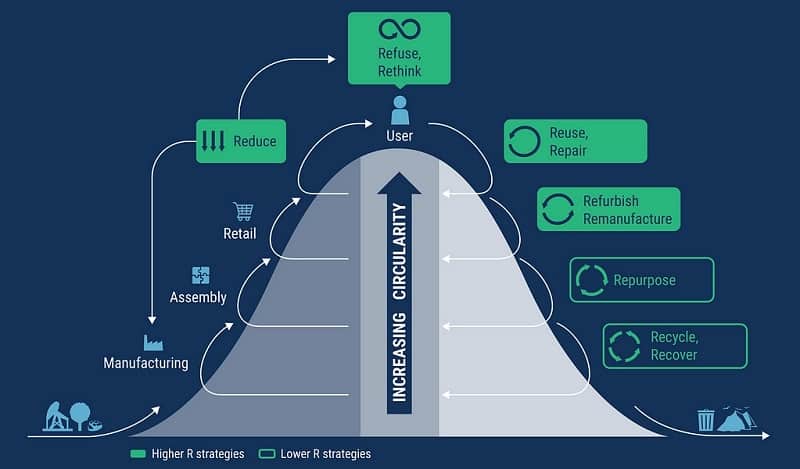
Recycling Polyamide12 Petrochemicals
